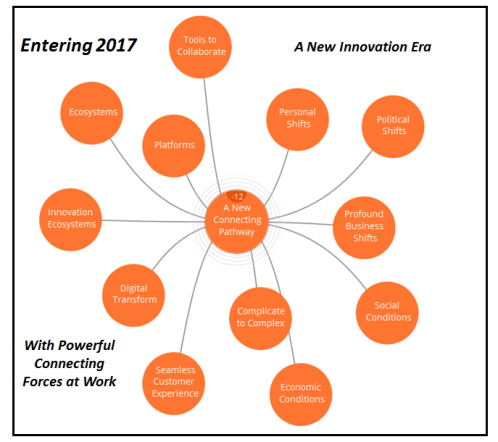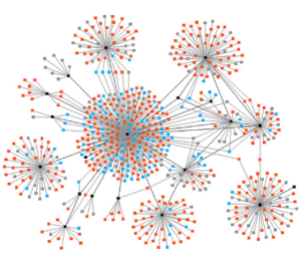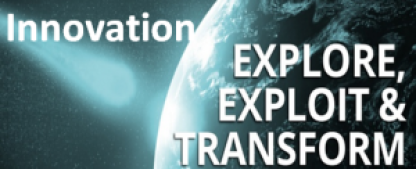 So if there was ever a time to clear the existing innovation agenda and rework the entire space for innovating, it is about to become the pressing reality as we enter into 2017.
So if there was ever a time to clear the existing innovation agenda and rework the entire space for innovating, it is about to become the pressing reality as we enter into 2017.
There are so many forces coming together that require this reworking. We are moving from diverging into one of converging, we are at a changeover point for innovation; let me explain each of the contributing factors but firstly, a brief overview.
The Merging Conditions and Forces
The very different political and economic conditions that will be arising in 2017, the continuing shifting social conditions, profound shifts we are undergoing in business and our own personal ones, makes it a world that is moving from being complicated to complex.
Any renewing does need innovation to become more central in our design but it will be managed differently far more collaboratory.
There is a lot of change occurring around our innovation abilities. There is the shift to more open-sourcing, the profound shifts that technology and digital transformation is having upon all our worlds is allowing a very different “connecting” innovation to come into play. We will see a significant acceleration of more innovation ecosystems, we are increasingly recognizing all the different collaborative tools increasingly at our disposal, we are exploring both platforms and forming ecosystems to radically alter the competitive edge previously seen to reside inside the single company.
A more opening out, forming more connections into customers, engaging them in appreciating their needs is leading us to recognize the value and power in the seamless customer experience. All of this comes from achieving a greater access and deepening the connections across networks. It is becoming the network economy
So I am exploring here each of these conditions that I believe are coming together for a really important transforming storm built around a new innovation management, increasingly making it the core to the future for growth. There is a time where each business has to become highly adaptive, agile, open and mutually dependent on others to deliver in this ‘connected’ world to exploit these conditions and explore the opportunities that will emerge. Continue reading “The Perfect Conditions for Entering A New Innovation Era in 2017”







